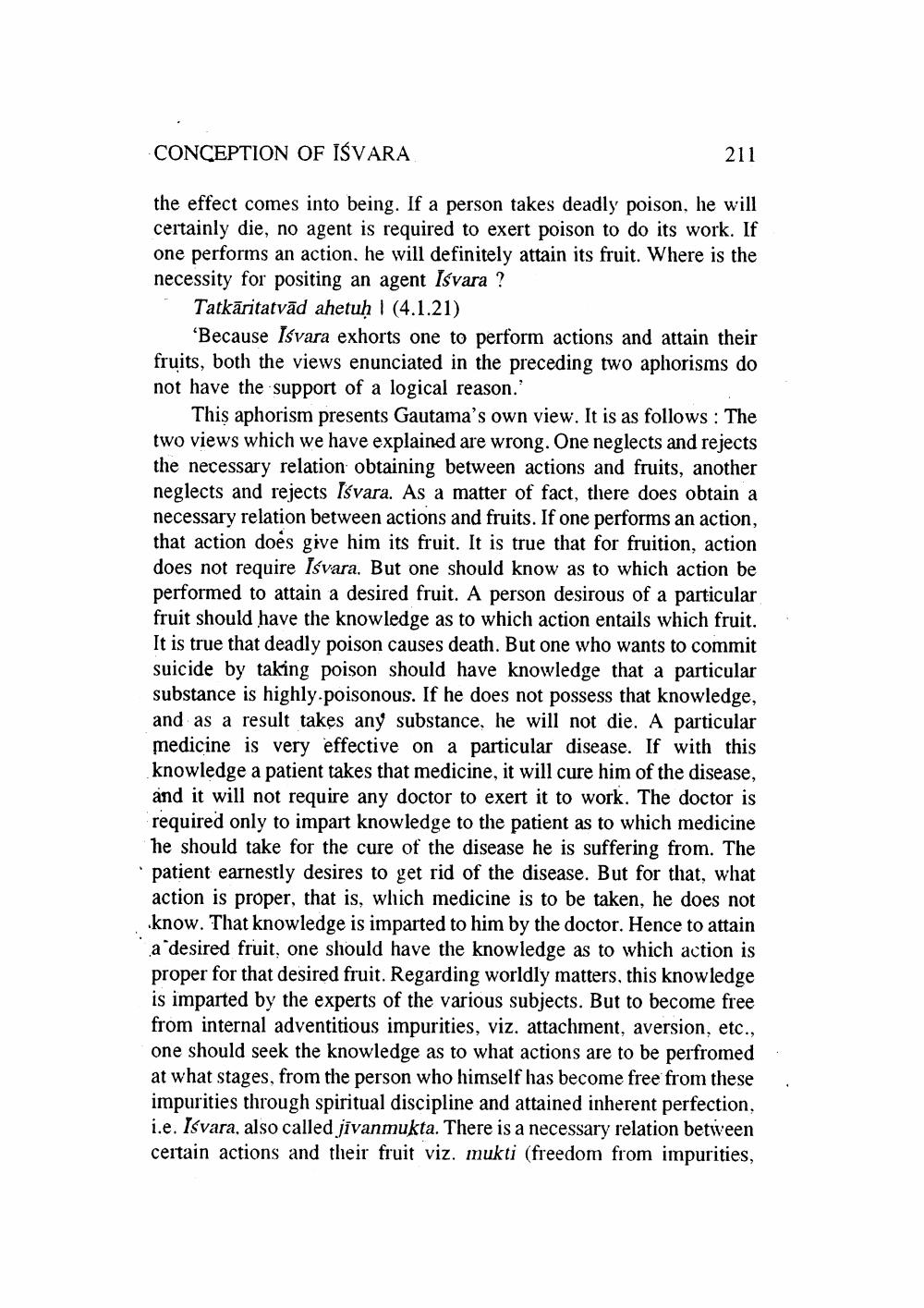________________
CONCEPTION OF ISVARA
211
the effect comes into being. If a person takes deadly poison, he will certainly die, no agent is required to exert poison to do its work. If one performs an action, he will definitely attain its fruit. Where is the necessity for positing an agent Isvara ?
Tatkāritatvād ahetuhl (4.1.21)
'Because Isvara exhorts one to perform actions and attain their fruits, both the views enunciated in the preceding two aphorisms do not have the support of a logical reason.
This aphorism presents Gautama's own view. It is as follows: The two views which we have explained are wrong. One neglects and rejects the necessary relation obtaining between actions and fruits, another neglects and rejects Isvara. As a matter of fact, there does obtain a necessary relation between actions and fruits. If one performs an action, that action does give him its fruit. It is true that for fruition, action does not require Iśvara. But one should know as to which action be performed to attain a desired fruit. A person desirous of a particular fruit should have the knowledge as to which action entails which fruit. It is true that deadly poison causes death. But one who wants to commit suicide by taking poison should have knowledge that a particular substance is highly poisonous. If he does not possess that knowledge, and as a result takes any substance, he will not die. A particular medicine is very effective on a particular disease. If with this knowledge a patient takes that medicine, it will cure him of the disease, and it will not require any doctor to exert it to work. The doctor is required only to impart knowledge to the patient as to which medicine he should take for the cure of the disease he is suffering from. The ' patient earnestly desires to get rid of the disease. But for that, what
action is proper, that is, which medicine is to be taken, he does not know. That knowledge is imparted to him by the doctor. Hence to attain a desired fruit, one should have the knowledge as to which action is proper for that desired fruit. Regarding worldly matters, this knowledge is imparted by the experts of the various subjects. But to become free from internal adventitious impurities, viz. attachment, aversion, etc., one should seek the knowledge as to what actions are to be perfromed at what stages, from the person who himself has become free from these impurities through spiritual discipline and attained inherent perfection, i.e. Isvara, also called jīvanmukta. There is a necessary relation between certain actions and their fruit viz. mukti (freedom from impurities,




